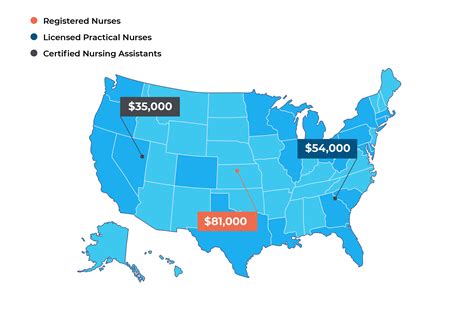Intro
Discover fulfilling outpatient nursing roles with exceptional benefits. Explore various career paths, including clinic, home health, and infusion nursing, offering flexible schedules, competitive pay, and opportunities for advancement. Learn about the advantages and requirements of these in-demand roles and find your perfect fit in the healthcare industry.
The healthcare industry is rapidly evolving, and the role of nurses is becoming increasingly crucial in ensuring the delivery of high-quality patient care. Outpatient nursing, in particular, has emerged as a vital component of the healthcare system, offering numerous benefits to both patients and nurses. In this article, we will delve into the world of outpatient nursing, exploring the various roles, benefits, and opportunities that await nurses in this field.
The importance of outpatient nursing cannot be overstated. As the healthcare landscape continues to shift towards preventive care and community-based services, outpatient nurses are playing a vital role in providing essential care to patients outside of traditional hospital settings. From clinics and physician offices to community health centers and home healthcare services, outpatient nurses are working tirelessly to deliver comprehensive care to patients with diverse needs.
Benefits of Outpatient Nursing

Outpatient nursing offers numerous benefits to nurses, including:
- Flexibility: Outpatient nursing roles often offer flexible scheduling, allowing nurses to balance their work and personal life more effectively.
- Autonomy: Outpatient nurses frequently work independently, making decisions and taking charge of patient care with minimal supervision.
- Variety: Outpatient nursing involves working with diverse patient populations, presenting a range of challenges and opportunities for professional growth.
- Job satisfaction: Outpatient nurses often report high job satisfaction rates, citing the ability to make a meaningful impact on patients' lives and the opportunity to work in a fast-paced, dynamic environment.
Outpatient Nursing Roles
Outpatient nursing encompasses a range of roles, each with its unique responsibilities and requirements. Some of the most common outpatient nursing roles include:
- Clinic Nurse: Clinic nurses work in outpatient clinics, providing primary and specialty care to patients. Their responsibilities may include conducting patient assessments, administering medications, and providing patient education.
- Physician Office Nurse: Physician office nurses work in private physician practices, assisting with patient care, conducting medical procedures, and maintaining patient records.
- Community Health Nurse: Community health nurses work in community-based settings, providing health education, conducting health screenings, and advocating for patients' needs.
- Home Healthcare Nurse: Home healthcare nurses provide care to patients in their homes, assisting with daily living activities, managing medications, and monitoring patients' conditions.
Education and Training Requirements

To become an outpatient nurse, individuals typically require:
- Associate's or Bachelor's Degree in Nursing: A degree in nursing is essential for outpatient nursing roles. Many employers prefer candidates with a Bachelor's degree.
- Registered Nurse (RN) Licensure: RN licensure is required for all outpatient nursing roles. Nurses must pass the NCLEX-RN exam to obtain licensure.
- Certification: Certification in a specific area of outpatient nursing, such as pediatrics or gerontology, can be beneficial for career advancement.
Skills and Qualities
Outpatient nurses require a range of skills and qualities, including:
- Communication skills: Effective communication is critical in outpatient nursing, where nurses must interact with patients, families, and healthcare teams.
- Critical thinking skills: Outpatient nurses must be able to think critically, making sound judgments and decisions in fast-paced environments.
- Compassion and empathy: Outpatient nurses must be compassionate and empathetic, providing emotional support to patients and families.
- Flexibility and adaptability: Outpatient nurses must be flexible and adaptable, working in diverse settings and responding to changing patient needs.
Salary and Benefits

Outpatient nurses are generally well-compensated, with salaries ranging from $60,000 to over $100,000 per year, depending on experience, location, and employer. Benefits may include:
- Health insurance: Many employers offer comprehensive health insurance to outpatient nurses.
- Retirement plans: Outpatient nurses may be eligible for employer-matched retirement plans, such as 401(k) or 403(b) plans.
- Paid time off: Outpatient nurses often receive paid time off, including vacation days, sick leave, and holidays.
Job Outlook
The job outlook for outpatient nurses is promising, with the Bureau of Labor Statistics predicting a 12% growth in employment opportunities for RNs through 2028. This growth is driven by an aging population, an increased focus on preventive care, and the need for healthcare services in community-based settings.
Conclusion
Outpatient nursing offers a range of benefits and opportunities for nurses, from flexibility and autonomy to variety and job satisfaction. With the healthcare landscape continuing to evolve, the demand for skilled and compassionate outpatient nurses is likely to grow. If you're considering a career in outpatient nursing, we encourage you to explore the various roles and opportunities available, and to pursue the education and training necessary to succeed in this rewarding field.
What is outpatient nursing?
+Outpatient nursing refers to the provision of nursing care to patients outside of traditional hospital settings, such as clinics, physician offices, community health centers, and home healthcare services.
What are the benefits of outpatient nursing?
+Outpatient nursing offers numerous benefits, including flexibility, autonomy, variety, and job satisfaction. Outpatient nurses also have the opportunity to make a meaningful impact on patients' lives and work in a fast-paced, dynamic environment.
What education and training are required for outpatient nursing?
+To become an outpatient nurse, individuals typically require an Associate's or Bachelor's degree in nursing, RN licensure, and certification in a specific area of outpatient nursing.
